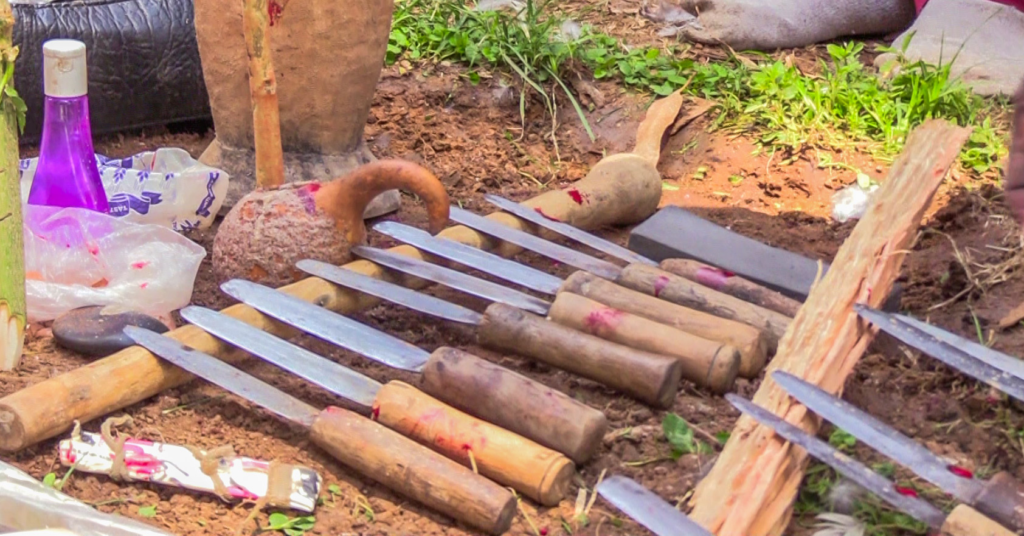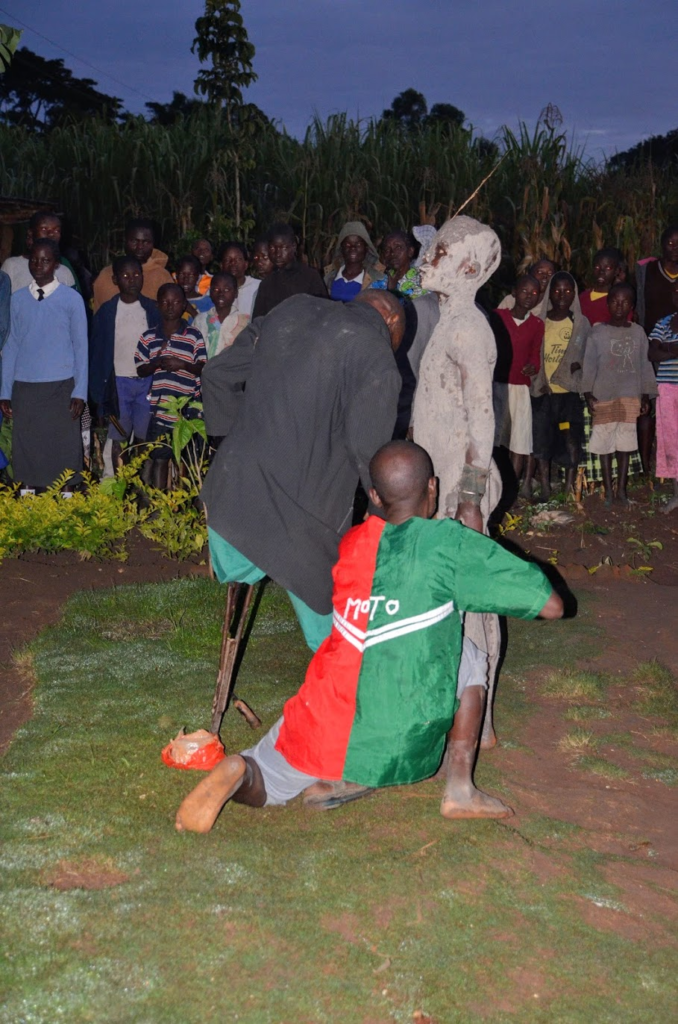
By Derrick Wanjala.
The Bukusu community has officially commenced preparations for the circumcision ceremonies, with circumcisers starting the crucial process of cleansing the knives that will be used.

This knife cleansing ritual, held every circumcision season, holds significant meaning for the community as it marks the beginning of the historical process of initiating boys into manhood. The circumcisers, who play a central role in this event, believe that cleansing the knives is essential to ensure the health and safety of the participants. “Cleansing the knives is a sacred tradition that safeguards the health of our boys,” stated one of the prominent circumcisers in the community. As the circumcision ceremonies draw near, these preparations continue to strengthen the culture and traditions of the Bukusu across the Gishu in Uganda and Kenya.
The knife cleansing ceremony is not merely a physical act but a deeply symbolic one. It involves various rituals and prayers to bless the instruments and ensure their purity. The process is conducted with great reverence, as it is believed to invoke the protection of ancestral spirits. The community gathers to witness the ceremony, reinforcing their unity and shared cultural heritage. This ritual underscores the importance of spiritual cleanliness and moral integrity in the Bukusu circumcision rites.

During the ceremony, elders recite traditional chants and prayers, invoking blessings upon the circumcisers and the young boys who will soon undergo the rite of passage. The atmosphere is charged with a sense of anticipation and solemnity. The cleansing of the knives is seen as a crucial step in preparing both the tools and the practitioners for the task ahead. “This ritual ensures that we honor our ancestors and protect our children,” said one of the elders present at the ceremony.
The Bukusu circumcision season is a period of intense activity and cultural expression. Families prepare their homes and gather resources to host relatives and friends who come to witness and support the initiates. The boys, known as Basinde, are guided through various pre-circumcision activities designed to prepare them mentally and physically for the ordeal. These activities include physical training, learning traditional songs, and understanding the cultural significance of the circumcision ceremony.
Gariba, or circumcisers, play a vital role in the Bukusu circumcision ceremonies. They are highly respected figures within the community, entrusted with the important task of performing the circumcisions. The cleansing of their tools is a testament to their commitment to maintaining the highest standards of hygiene and safety. “Our duty is to ensure that the boys transition to manhood in the safest way possible,” explained one of the gariba. This commitment to safety is a reflection of the community’s dedication to the well-being of its members.

The knife cleansing ritual also serves as an opportunity for the community to reaffirm its cultural values and social bonds. It is a time for teaching the younger generation about their heritage and the responsibilities that come with adulthood. The elders emphasize the importance of courage, respect, and discipline, qualities that are essential for the boys as they prepare to take on new roles within the community. “This is a pivotal moment for our boys; we must guide them with wisdom and care,” said a community elder.
In addition to the cultural and spiritual dimensions, the knife cleansing ceremony has practical implications for the circumcision process. Ensuring that the knives are thoroughly cleaned and blessed helps to prevent infections and complications during and after the procedure. The use of clean and sanctified tools is a critical aspect of the traditional medical practice employed by the gariba. “Hygiene is paramount; we take every precaution to protect the health of our initiates,” remarked one of the circumcisers.
As the day of the circumcision approaches, the excitement and tension within the community build. The basinde are surrounded by family and friends who offer support and encouragement. The boys are reminded of the significance of the rite they are about to undergo and the expectations that come with their new status as men. The entire community comes together to celebrate this important milestone, highlighting the collective nature of the Bukusu cultural practices.
The knife cleansing ceremony also attracts attention from outside the community. Researchers and cultural enthusiasts often visit to observe and document the rituals, recognizing their importance in preserving indigenous knowledge and traditions. The Bukusu are proud of their heritage and are open to sharing their customs with the world. “Our culture is our identity; we must preserve it for future generations,” stated a Bukusu cultural ambassador.
Despite the changing times and external influences, the Bukusu community remains steadfast in its commitment to its traditional practices. The circumcision ceremonies are a testament to the resilience and continuity of their cultural heritage. By maintaining these rituals, the Bukusu ensure that their values and way of life are passed down through generations. “Our traditions are the backbone of our community; they define who we are,” emphasized a community leader.
As the knife cleansing ceremony concludes, the community members return to their preparations, filled with a sense of purpose and unity. The circumcisers are ready, the boys are prepared, and the community is united in its support. The stage is set for the circumcision ceremonies, which will mark a new chapter in the lives of the young boys. The Bukusu community looks forward to celebrating this important cultural event, confident in the knowledge that they are upholding a time-honored tradition.





